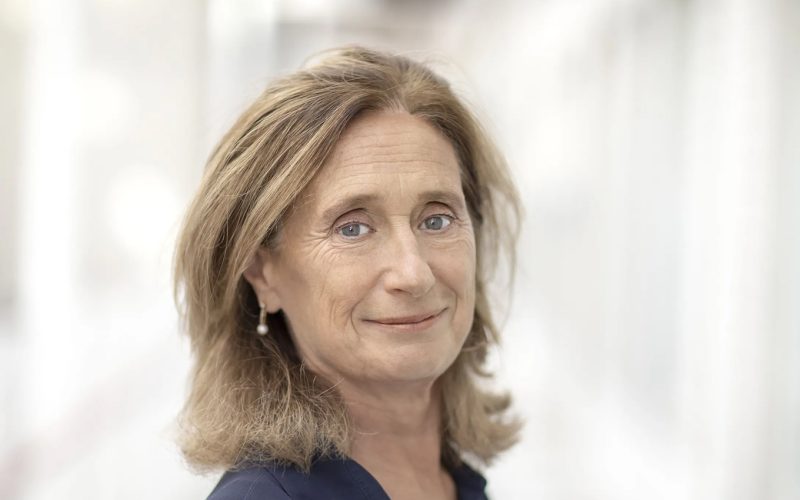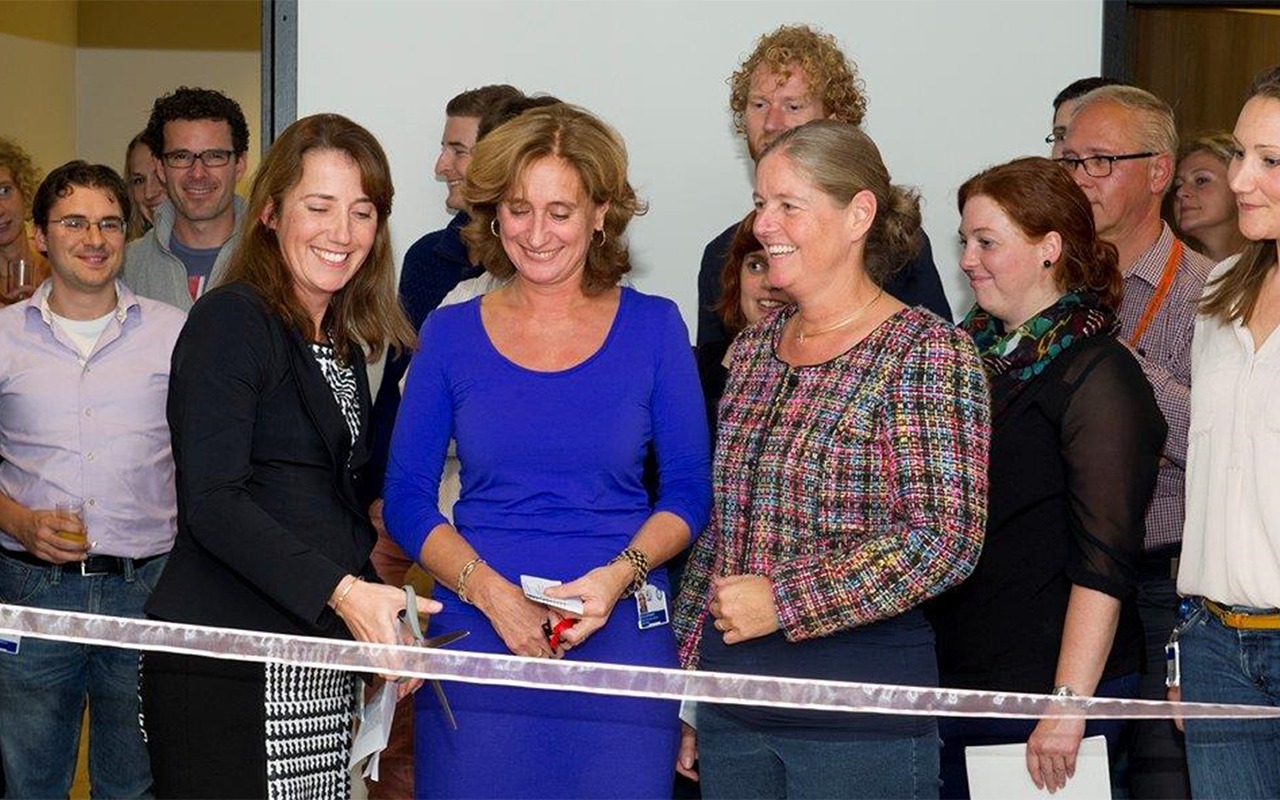After nearly 40 years at UMC Utrecht, Prof. Dr. Nicolette Notermans, head of the Neurology Department, will retire on April 1. Following a long and meaningful career, she delivered her farewell lecture on February 7. Nicolette reflects on her time at UMC Utrecht, the developments in neurology, and her plans for the future.
“During the COVID-19 pandemic, we had to conduct our consultations via video calls. For polyneuropathy patients, we use a test where they have to stand still with their eyes closed. At the time, we conducted this test online as well. One day, I had a patient who was on a boat, and during the test, he suddenly disappeared from view. There was complete silence on the other end of the line, and I had no idea what had happened. Fortunately, it turned out that nothing was wrong with the patient, but from that moment on, we decided never to conduct that part of the consultation online again. I will never forget that moment.”
“Absolutely! When I started here, UMC Utrecht was still quite conservative, and most neurologists were men. Today, the department is much more balanced, modern, and dynamic. The medical advancements have also been great. In the old AZU (Academic Hospital Utrecht) building, we had a CT-scanner that could only produce blurry images, and we had to move the patient between buildings to perform the scan. Nowadays, we instantly receive high-resolution images, allowing us to make quick decisions about a patient’s treatment. Neurology has evolved from an observational field into an active, intervention-based discipline, which attracts a different type of professional.”
“In 1985, I graduated from Radboud University Nijmegen and was looking for a change of environment. In 1986, I started as a neurology resident at UMC Utrecht, specializing in neuromuscular diseases and clinical neurophysiology. In 1998, I became a faculty member in the Neurology Department, and in 2008, I was appointed medical head of Neuromuscular Diseases. On May 1, 2019, I became full professor of Neuromuscular Diseases, and for the past six years, I have served as the head of the Neurology Department.”
“Together with Leonard van den Berg (coordinator of the ALS Center and professor of Experimental Neurology), I witnessed the department’s growth. Initially, we worked in a small space and searched for a larger location. The only available space was on the second floor, which nobody wanted because it had no windows—but we seized the opportunity. That’s where we established the new Neuromuscular Diseases outpatient clinic. The opening of our dedicated clinic provided a tremendous boost, allowing us to offer specialized care and train young doctors. We were also the first to introduce short-term internships for medical trainees from all over the Netherlands, which we called ‘showcase internships.’ This significantly contributed to the knowledge base in the field.”
“This is why UMC Utrecht still remains as a leader in neuromuscular diseases. We are not only the largest in this field but also at the forefront of research. Thanks to funding from organizations like Spieren voor Spieren and Stichting ALS Nederland, we have been able to invest heavily in staff and facilities.”
The opening of the Neuromuscular Diseases outpatient clinic with Nicolette Notermans, Marina Blom (medical department head of the Neurology ) en Mirjam van Velthuizen (former member of the Board of Directors).
“Yes, the Neurology Department was searching for a new department head. The neuromuscular group I led at the time said, ‘We are a difficult group. You know how to guide us and bring out the best in us. If you can do that with us, you can also manage the entire department.’”
“As department head, I have always prioritized broad-based training in acute neurology. It is essential to explore new innovations, expertise in rare diseases, and research. At the same time, maintaining a broad knowledge base is crucial to keep the department running effectively. This will become even more important given the upcoming healthcare workforce shortages.”
“After attending a conference in Utah in 2001, I traveled to New York with my husband and experienced 9/11 firsthand. I watched the towers collapse before my eyes—this had a deep impact on me. After that, I no longer wanted to fly to research conferences, so I shifted my focus to management. But I missed research. Now, I’m doing more research again, polyneuropathy remains my passion.”
“I am going to paint, join my book clubs, play golf, and travel with my husband! Cambodia and Vietnam are high on my list. And who knows, maybe I’ll enter politics someday. But first, I want to take some time to relax – after that, I’ll see what comes my way!”
“That work should be fun and enjoyable. If you love what you do, it doesn’t feel like work, and you naturally do more for each other. A good atmosphere is incredibly important. I believe that as a department head, you should dare to think outside the box a little to create that environment.”

